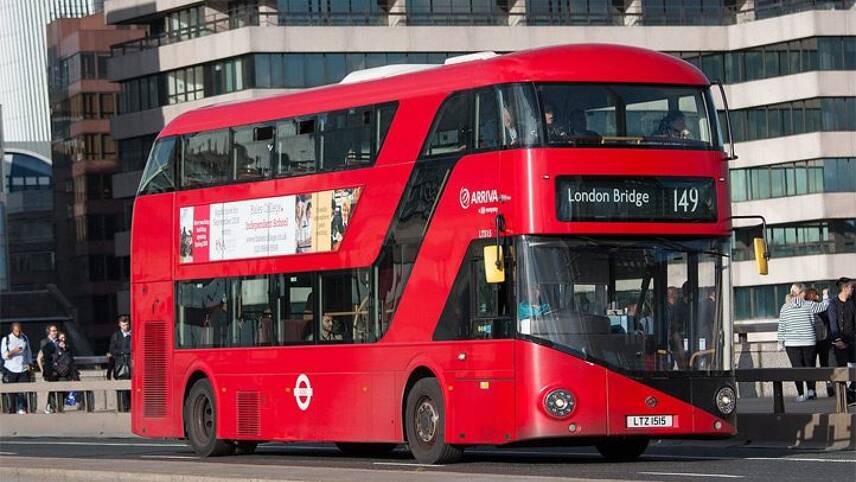Register for free and continue reading
Join our growing army of changemakers and get unlimited access to our premium content

Bamford estimates that the Government may need to provide around £500m Image: km30192002 / CC BY
Jo Bamford, the grandson of JCB founder Joseph Bamford, acquired Wrightbus last year and now wants to combine the bus manufacturer with his other business venture, a hydrogen production firm Ryse.
In a blueprint sent to the UK Government, Bamford has outlined plans to create 3,000 hydrogen buses – which would account for around 10% of the UK’s total fleet – and place them into operation in cities including Aberdeen, London, Liverpool, Birmingham, Belfast, Glasgow and Edinburgh by 2024.
Bamford claims the vehicles would only emit water vapour, making it a clean use of hydrogen, and could save around 280,000 tonnes of carbon emissions annually.
“Cities around the world are seeing massive reductions in air pollution as many vehicles have been kept off the road during the pandemic,” Bamford said.
“We have an opportunity with hydrogen-powered transport to make a huge difference to air quality, and for UK jobs as well. With increased orders on this scale, I could increase the workforce at Wrightbus by nearly 700%.”
It has been reported that Bamford has requested £500m from the Government to kickstart the hydrogen transition – equivalent to 10% of the Nation Bus Strategy fund.
Bus build-up
Organisations representing more than 95% of the UK’s bus industry have pledged to only invest in low-emission vehicles from 2025, through the industry body the Confederation of Passenger Transport (CPT).
The commitment will see Confederation members such as Arriva, Go Ahead, National Express, Stagecoach and First Group, develop plans to purchase only zero-emission vehicles for use in cities and low-emission vehicles for use in more rural UK locations over the next five years.
Such plans, the CPT claims, will help it to ensure that 5.4 billion journeys are made by bus in the UK each year by 2030, up from 4.4 billion at present, decreasing the public’s reliance on privately-owned petrol and diesel cars.
Last year, TfL revealed that a total of 165 zero-emission buses were in operation around London. The capital has since integrated around 70 electric double-decker buses into its fleet. TfL has already ordered 20 hydrogen-powered buses from Wrightbus, which are being rolled out throughout the year. London has committed to procuring roughly 300 zero-emission buses by 2020.
Matt Mace


Please login or Register to leave a comment.